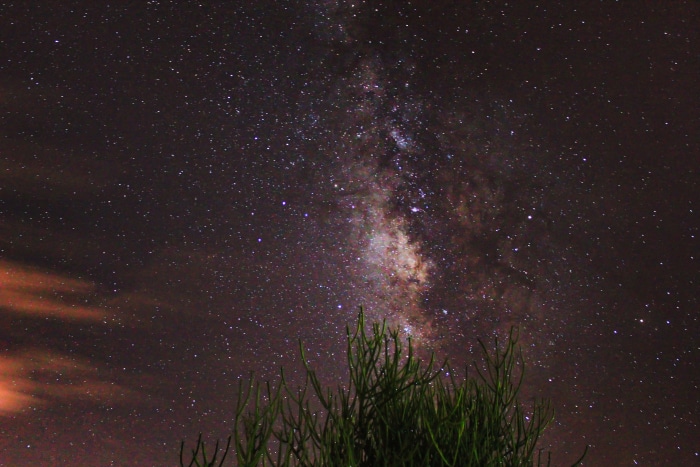StarRockets wants to launch advertising billboards into orbit

Two lunar eclipses took place in the last six months and we have all been raising our gazes to the sky to witness the space-spectacle that these were. Now imagine if, instead of a lunar eclipse, a giant advertisement would appear among the stars; Coca-Cola, Adidas, or Nike for instance. Well, regardless of whether the idea of using space as a platform for advertisement sparks excitement or scepticism in you, it could potentially become the sky’s next big thing as a Russian startup is currently working to project ads onto the deep blue sky, it seems as though the saying the sky is the limit might need a 2021 revamp.
StartRocket’s ambitious project, which goes under the title of Orbital Display, aims to launch billboard advertisements to low-earth orbit using a grid of box-sized satellites, also known as CubeSats, designed in collaboration with SkolTech, a private university based in Moscow that is developing the prototype. The idea is that the small satellites would orbit around 280 miles from the ground and function by reflecting the sunlight to create a network of nanosats that work as a framework for panels to be ‘written’ on. To make sure Orbital Display would not exclusively serve commercial purposes, the startup intends to use this technology to also enable governments to project urgent information and other statements onto the grids.
Forget about Don Draper, StartRocket’s CEO and founder Vladilen Sitnikov seems more reckless than our favourite mad man. Sitnikov defines himself as an “advertising guy with a crazy idea”, as explained in the science magazine Discover. His idea does sound crazy, not because of its potential technological limits, but mainly because of the short term commercial ethos that it relies on. Technically, if properly funded, the project could easily take off by 2021, and it wouldn’t be the first nor the last commercial project floating in space. Around two thousand minisatellites are currently circulating in the sky, powered by tech companies such as Rocket Lab, Boeing, SpaceX as well as by universities and armies. The “microlaunch space race” is happening and is set to grow, but regardless of the popularity of microsatellites, being sceptical towards Sitnikov’s project is more than reasonable.
Astronomer John Barentine, member of the American Astronomical Society’s Committee on Light Pollution, Radio Interference and Space Debris is convinced that the space billboards could increase light pollution while producing space debris. As we are still struggling to find sustainable solutions to both pollution and waste on the ground, shouldn’t we think twice before starting to pollute space in the name of advertisements?
Moreover—even though the vision of a floating luminous logo does sound tempting—in a moment when advertising is increasingly becoming hyper-personalised and everywhere in our lives, I have my doubts that a universal logo projected in the sky represents the future of advertisement. “It’s human nature to advertise everything … Brands [are] a beautiful part of humankind,” Sitnikov said in a video call with Discover. Let’s assume that his statement is accurate, just because it is human nature to advertise everything, are we sure it is human nature to advertise everywhere?




